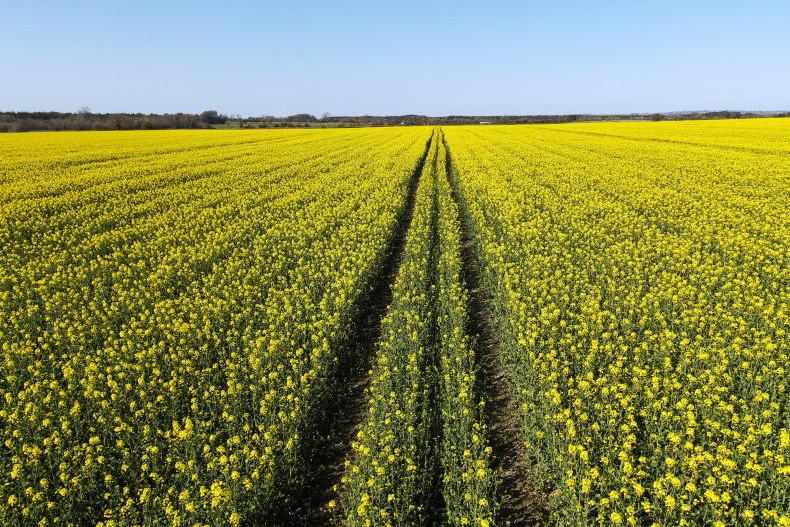The Irish Grain Growers Group (IGGG) has called for an examination into what it calls the excessive use of genetically modified maize, soya, and palm kernel, and its by-products, now entering the Irish food chain.
The group have said that these products have been entering Ireland from third countries outside the European Union and that consumers have the right to be informed via labelling about the expanded use of GMOs in the Irish food chain.
Over 70% of imports now come from outside the EU while over 50% of imports was genetically modified in 2024. There were around 1.8m tonnes of maize and its by-products imported last year as well as 1.2m tonnes of soya and its by-products, both of which 60% were genetically modified.
A spokesperson for the IGGG said: “Our sector has achieved the lowest carbon footprint of any agricultural industry in Ireland, with recent Teagasc research showing carbon neutrality on many Irish grain farms.
“Instead of being rewarded for excellence in climate action, biodiversity, and food safety, our grain is being downgraded and thrown in with inferior GMO imports The Government and relevant agencies, including Bord Bia, have to date failed to differentiate, through labelling or marketing, between high-quality Irish grain and vastly inferior imported feed.”
Irish grain
The IGGG also said that this year’s harvest quoted prices are lower than those paid in the 1980s. The sector has lost 1,450 growers in the last two years alone which the group said is “clear evidence that the current situation is unsustainable”.
The IGGG said the presence of imported GM grain: undercuts the price of Irish-grown grain; contradicts Ireland’s climate ambitions by increasing reliance on long-distance imports; questions whether consumer knowledge about GM feedstuffs in the Irish food chain is being portrayed a distinctive manner.
It has called on the Government, industry stakeholders, and retailers to support home-grown grain by: implementing clear labelling and segregation of GM and non-GM products; prioritising the use of native grain/pulse/oilseeds in livestock and food production supply chains; offering financial and policy support to encourage greater use of Irish cereals, pulses and oilseeds.
The EU Agriculture Commissioner, Janusz Wojciechowski, previously said: "If we can't use these chemicals on our farms, we should not import produce treated with them.”
Read more
Profitable grain price only available 10% of time this season
Grain Trends: prices more positive, maize an issue
The Irish Grain Growers Group (IGGG) has called for an examination into what it calls the excessive use of genetically modified maize, soya, and palm kernel, and its by-products, now entering the Irish food chain.
The group have said that these products have been entering Ireland from third countries outside the European Union and that consumers have the right to be informed via labelling about the expanded use of GMOs in the Irish food chain.
Over 70% of imports now come from outside the EU while over 50% of imports was genetically modified in 2024. There were around 1.8m tonnes of maize and its by-products imported last year as well as 1.2m tonnes of soya and its by-products, both of which 60% were genetically modified.
A spokesperson for the IGGG said: “Our sector has achieved the lowest carbon footprint of any agricultural industry in Ireland, with recent Teagasc research showing carbon neutrality on many Irish grain farms.
“Instead of being rewarded for excellence in climate action, biodiversity, and food safety, our grain is being downgraded and thrown in with inferior GMO imports The Government and relevant agencies, including Bord Bia, have to date failed to differentiate, through labelling or marketing, between high-quality Irish grain and vastly inferior imported feed.”
Irish grain
The IGGG also said that this year’s harvest quoted prices are lower than those paid in the 1980s. The sector has lost 1,450 growers in the last two years alone which the group said is “clear evidence that the current situation is unsustainable”.
The IGGG said the presence of imported GM grain: undercuts the price of Irish-grown grain; contradicts Ireland’s climate ambitions by increasing reliance on long-distance imports; questions whether consumer knowledge about GM feedstuffs in the Irish food chain is being portrayed a distinctive manner.
It has called on the Government, industry stakeholders, and retailers to support home-grown grain by: implementing clear labelling and segregation of GM and non-GM products; prioritising the use of native grain/pulse/oilseeds in livestock and food production supply chains; offering financial and policy support to encourage greater use of Irish cereals, pulses and oilseeds.
The EU Agriculture Commissioner, Janusz Wojciechowski, previously said: "If we can't use these chemicals on our farms, we should not import produce treated with them.”
Read more
Profitable grain price only available 10% of time this season
Grain Trends: prices more positive, maize an issue






 This is a subscriber-only article
This is a subscriber-only article










SHARING OPTIONS: